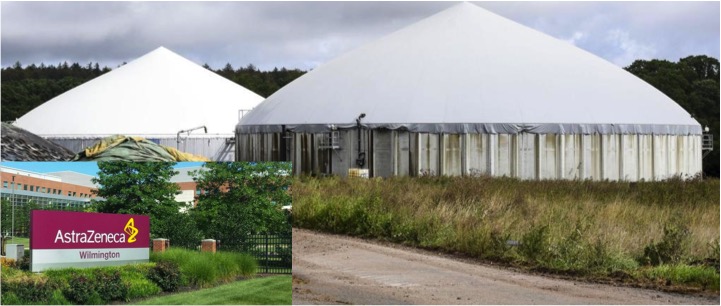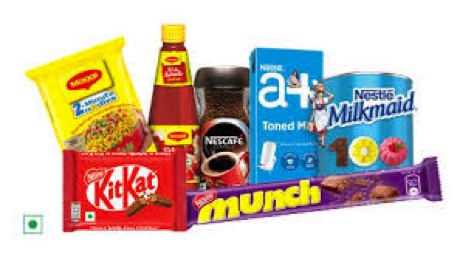One of the world’s pharmaceutical giants is using dairy-cow manure and food waste to help reduce its reliance on natural gas – and to cut carbon emissions at the same time.
United Kingdom drug company AstraZeneca is partnering with Vanguard Renewables, based in Massachusetts, to use biogas for heat and power in all its U.S.-based research and manufacturing facilities. The change is expected to be complete by the end of 2026.
From June 2023, AstraZeneca will begin purchasing renewable natural gas produced by Vanguard Renewables for its Newark Campus in Delaware, where the company packages 26 medicines for distribution across the United States. The campus also makes medical formulations for global supply.
By 2026 this collaboration is intended to enable as much as 650,000 million British thermal units, or 190,500 megawatt hours per year, of renewable natural gas to be used across AstraZeneca’s U.S. sites. That’s equivalent to the energy required to heat more than 17,800 homes across the United States for one year.
Pam Cheng, chief sustainability officer at AstraZeneca, said, “We recognize the interconnection between the health of people and the planet, and are committed to driving deep decarburization across our operations and value chain.
“Our innovative partnership with Vanguard Renewables in the United States is an illustration of how we are collaborating at scale to deliver sustainable science and medicines, as part of the transition to net-zero health systems and a circular economy.”
AstraZeneca is taking a science-led, patient-centric approach to deliver improved health outcomes, she said, with a reduced environmental footprint. Because heat and power are critical to the manufacture of medicines, the decarburization of healthcare requires access to clean sources of heat – such as renewable natural gas.
The new partnership with Vanguard Renewables is an important milestone in delivering emissions reductions in line with AstraZeneca’s flagship “Ambition Zero Carbon” program. The company states it’s on track to reduce greenhouse-gas emissions from its global operations by 98 percent by 2026, from a 2015 baseline. AstraZeneca aims by 2030 to halve its entire value-chain footprint on the way to becoming science-based net-zero by 2045 at the latest. The use of renewable natural gas at AstraZeneca sites in the United States will further enable the company’s transition to 100 percent renewable energy for heat and power.
The new agreement will utilize Vanguard Renewables “Farm Powered” process, allowing Vanguard Renewables to work with dairy farmers as well as food and beverage manufacturers, retailers and distributors to produce renewable natural gas using farm-based anaerobic digestion from food and dairy-cow manure.
Once the renewable natural gas is produced and captured through anaerobic digestion, it will be injected into existing natural-gas infrastructure for use in AstraZeneca’s medical research and manufacturing processes. Through the partnership with Vanguard Renewables, AstraZeneca states it will access excellent-quality renewable natural gas from three on-farm anaerobic-digester facilities across the United States for the next 15 years or more.
Neil Smith, chief executive officer at Vanguard Renewables, said, “Vanguard Renewables is excited to be partnering with AstraZeneca on this transformative business-to-business clean-energy solution. AstraZeneca has set a very ambitious and challenging net-zero target, which is a benchmark for their sector and other global corporations.
“We strongly believe this partnership will provide a path for other like-minded companies to join us on the journey toward global decarburization.”
The collaboration will utilize food and waste from local and family-owned farms, he said. The process captures methane from dairy operations that would have otherwise been emitted into the atmosphere. It will reduce pollution from the farming sector.
Vanguard Renewables has been working with multi-generational dairy farms as well as food and beverage manufacturers since 2014. The company states it provides sustainable solutions to greenhouse-gas-emission challenges by diverting food waste from landfills and sequestering on-farm emissions.
Vanguard’s “Farm Powered” process provides dairy farmers across the United States with an additional revenue stream via land lease. It supports regenerative-agriculture practices and helps to ensure those farms will be operating for years to come.



























